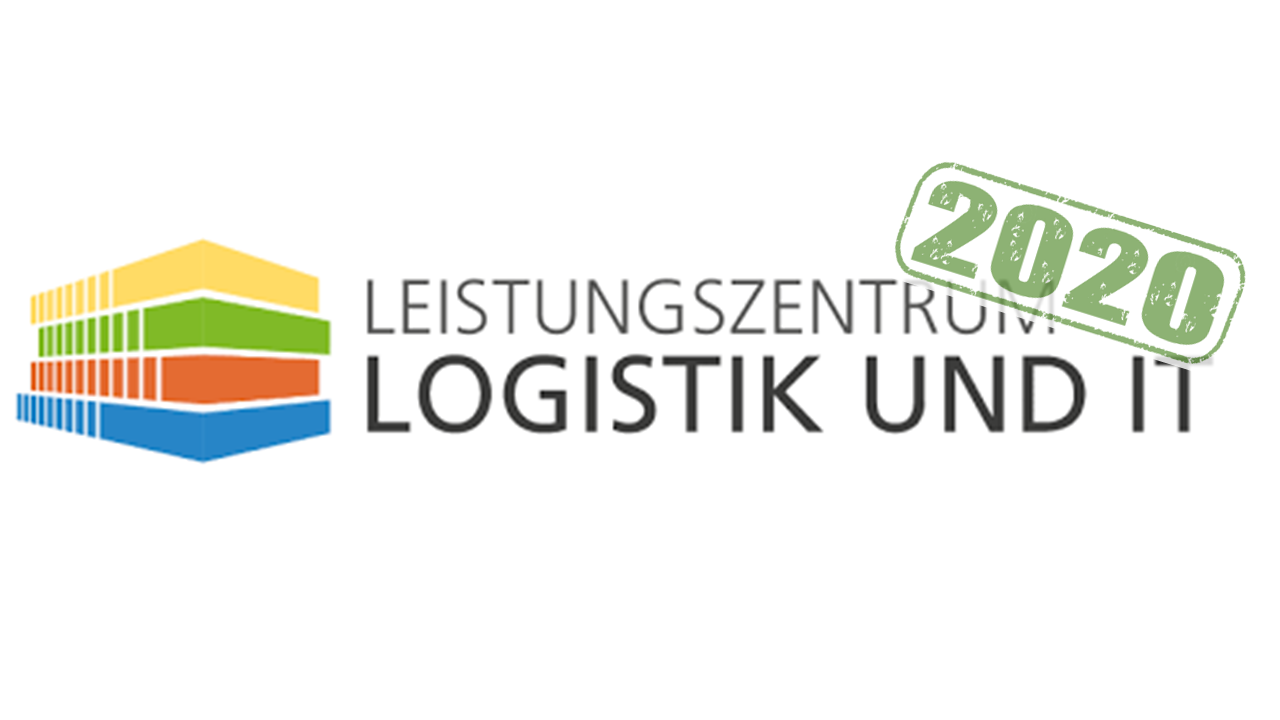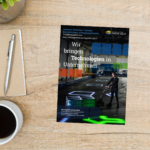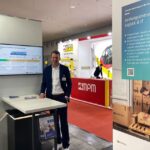Dortmund, February 2020 – Transfer of innovative ideas, models and projects in focus – Networking scientific institutions, bringing together the competencies of different actors: The Center of Excellence Logistics and IT can continue the successful work of the first funding phase from 2016 to 2019. One focus of the work of the Center of Excellence in the second funding phase until the end of this year is now on the transfer from research to economy. “After we have launched many visionary topics and groundbreaking interdisciplinary projects in recent years, we are now bringing top-level research directly to where it is needed: into the economy,” says Michael Schmidt from the management team of the Center of Excellence. “Following a successful evaluation of the activities, the continuation of the Center of Excellence was approved by the Fraunhofer-Society at the end of last year. Now the approval of the NRW federal state for further funding has also been received.
The Center of Excellence Logistics and IT is one of a total of 16 centers of excellence of the Fraunhofer-Society, which organize the close cooperation of university and non-university research with industry. It is supported by the Fraunhofer Institutes for Material Flow and Logistics IML and for Software and Systems Engineering ISST, the TU Dortmund University and the IfADo Leibniz Institute for Labour Research at the TU Dortmund University.
Successful clan structure is continued with new projects. The research clans were reorganised for the second funding phase. A total of eight interdisciplinary and cross-institutional research groups will now drive forward the future topics of logistics and information logistics. The new clan structure is the result of a comprehensive application process: In the middle of last year, the Center of Excellence called on the scientists at the site to submit concrete projects and project ideas for the further work of the Center of Excellence. “Over the past three years, we have built up a research and innovation community that appreciates the value of cross-institutional cooperation at the Dortmund science location and the uncomplicated access to experimental halls, test and experimental fields of all facilities,” says Christoph Pott, also a member of the management team. “Participation in our call for new project ideas was therefore correspondingly high”.
The researchers made their selection of projects not least on the basis of a so-called research map – one of the central overarching projects of the Center of Excellence. The research map links trend topics and application areas of logistics at the site with one another, so that research priorities and potential can be seen at a glance for the first time.
Based on the successful work of the last ten clans in conjunction with the new project submissions, the Center of Excellence put together the new clans. Christoph Besenfelder from the management team: “The structure of the research clans is a model of success: Thanks to the interdisciplinary composition of the research groups, we have been able to further develop and deepen many novel research approaches in recent years”. In the new composition, care was taken to ensure that the individual clans include even more different institutions than before.
Some of the new clans even pursue two or more so-called “workstreams”, which take the transfer idea into account by developing demonstrators and conducting studies. For example, the “Applied Cognitive Ergonomics” clan operates a test centre for picking technologies. The “Digital Health Care” clan focuses on use cases in the healthcare sector, while the “Information Logistics” clan merges the original disciplines of logistics and computer science. In the “Human-Technology Interaction” clan, among other things, an autonomous transport system is to be brought to market maturity. The “Autonomous Logistics Systems” clan transfers research topics on robotics and autonomy at the site into practical projects. The clans “Machine Learning” and “Business Models and Innovation Transfer” function as cross-sectional clans and support the other clans with their research results.
Overview of the clans of the Center of Excellence (alphabetical order)
• “Applied Cognitive Ergonomics”
Workstreams: Cognitive Ergonomics, Test Center Picking Technologies
• “Autonomous logistic systems”
Workstreams: Autonomous multi-robot systems, AI for controlling logistic systems, modelling of human behaviour in logistic systems, IT for the Silicon Economy
• “Digital Health Care”
Workstreams: Digital hospital processes, social networked health
• “Business models and innovation transfer”
• “Information Logistics”
Workstreams: Usage Control Policies in Data Economics, Digital architectures in logistics
• “Machine Learning”
• “Human-Technology Interaction”
Workstreams: Design of socio-technical systems, virtual reality
• “Software Engineering in Intralogistics”
Photo: Center of Excellence Logistics and IT




